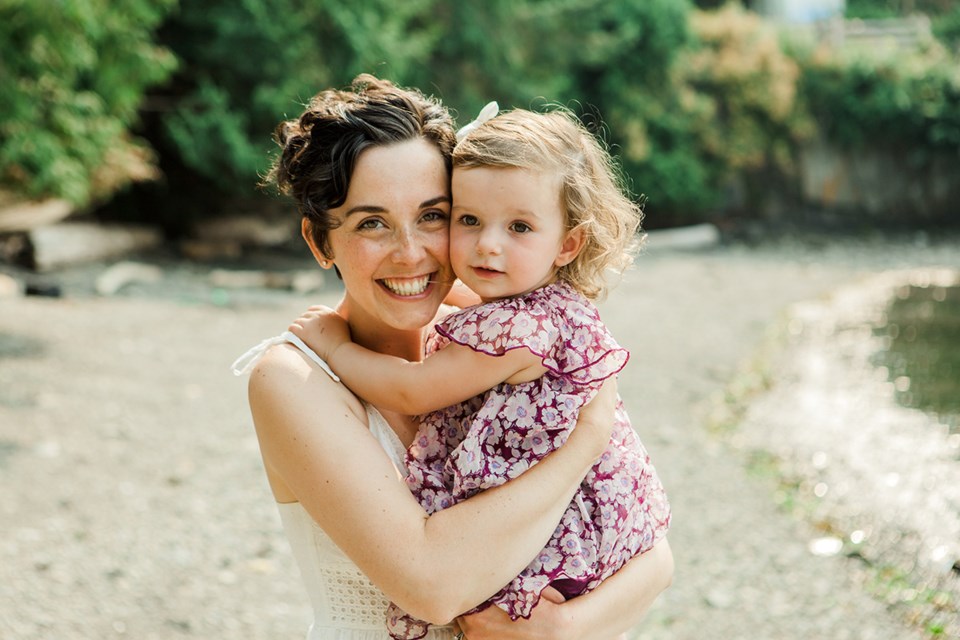Edith Jane Barrett Frohlich saved her mother’s life. And that was before she was even born.
If little Edie hadn’t kicked up such a fuss about sharing a womb with a six-pound tumour, her mother, Erin Barrett, would have dismissed the symptoms of ovarian cancer as “pregnancy stuff.”
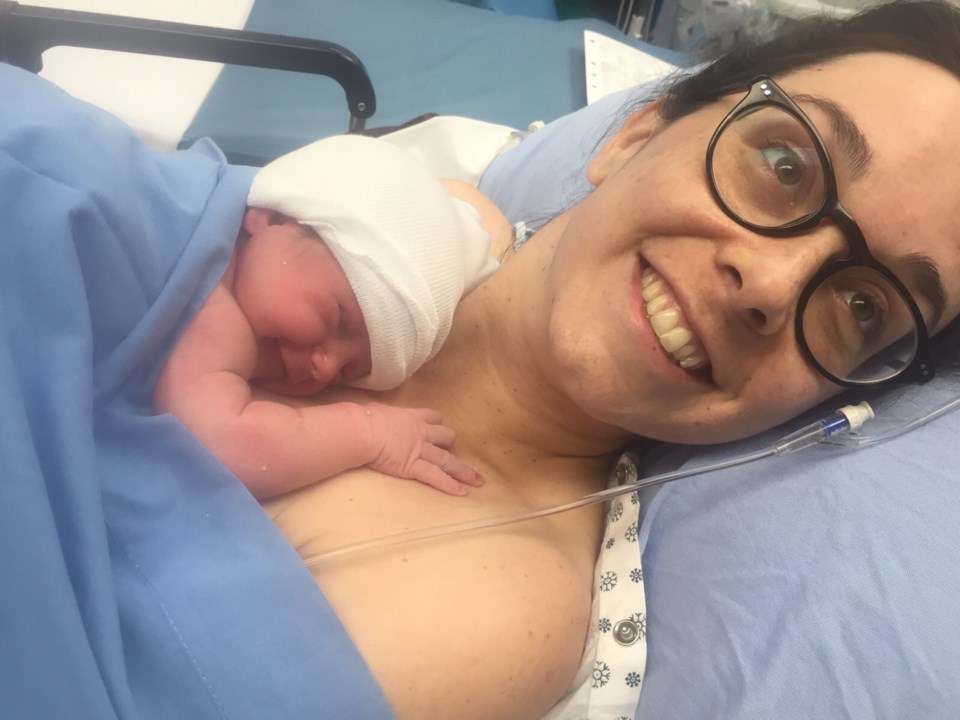
Like Kate Middleton, aka the Duchess of Cambridge, Barrett suffered from terrible pregnancies that left her feeling sick all the time. But this was different. Thirty-six weeks into the pregnancy, Edie was causing her mother so much pain that Barrett made an appointment with her obstetrician-gynaecologist. The subsequent ultrasound revealed a large growth in the same place she’d had a cyst the previous year.
Whatever it was, Edie’s distress meant it had to be removed. Now.
Two days later, Edie was delivered by an emergency caesarian. The surgeons also took out the volleyball-sized tumour that was tucked into Barrett’s ribcage.
Two years later, Edie continues to save lives.
“People have asked me what they can do to help,” Barrett wrote in a December 2015 Facebook post. “This is something I have struggled with as I have been so well looked after. My decision is to ask you all to help me raise awareness.”
The post, which implores women not to ignore the warning signs of ovarian cancer, has been shared almost 304,000 times. It put Barrett (and Edie) in the media spotlight, including the cover of the Vancouver Province. The response was overwhelming, and Barrett knows of at least five women who were prompted to go to their doctors, only to discover they too had ovarian cancer.
On September 20, Barrett will be the featured speaker at Hope Couture, a BC Cancer Foundation fundraiser to prevent women’s reproductive cancers at the Rocky Mountaineer station on Cottrell Street.
This year, 2,800 Canadian women — one in 67 — will be diagnosed with ovarian cancer and 1,750 will die from the disease. It remains one of the most fatal cancers because it tends to be diagnosed when it’s reached stage three or four. Barrett found hers at stage one, all because of Edie.
“The statistics for outcomes haven’t changed in 50 years. Fifty-nine per cent of women don’t make it past five years,” the 37-year-old mother of two says. “I’m lucky. Edie saved my life, the little monkey.”
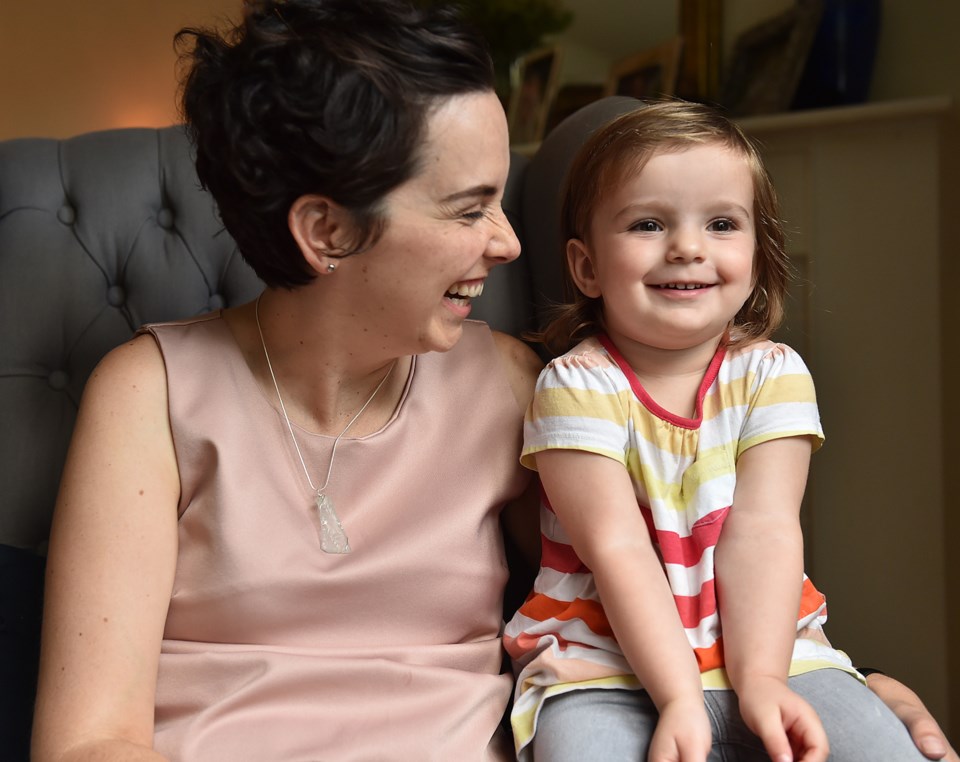
The cancer diagnosis
Hyperemesis gravidum, a severe form of nausea during pregnancy, isn’t the only link that Barrett shares with Kate Middleton. Both women have equally adorable sons and daughters the same age. But while the Duchess of Cambridge is now expecting another baby, Barrett and her husband, Tom Frohlich, had to make an overnight decision not to have the third child they had always planned.
The Vancouver couple had thought that after the tumour — which they called Ozzie — was removed, the cancer was gone. The biopsy, however, revealed that a capsule had broken off so there was a strong chance of microscopic spread.
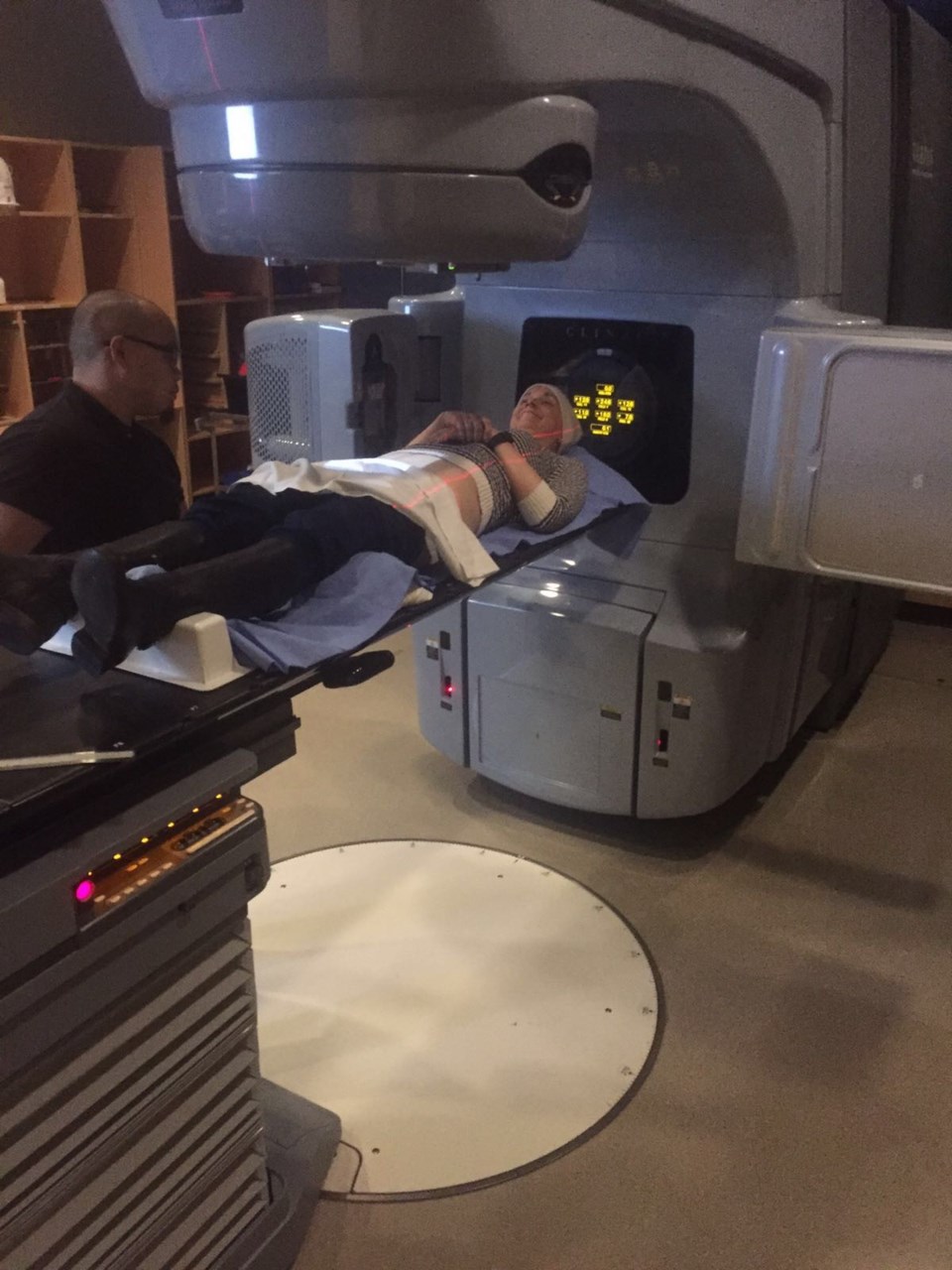
As a preventative measure, the B.C. Cancer Agency recommended three rounds of chemo and 25 radiation treatments.
“The BCCA is one of the few cancer agencies that breaks out different subtypes and treats them differently,” Barrett says. “One type of ovarian cancer doesn’t respond to radiation but the BCCA has done all this research and they knew my subset did.”
They felt “blindsided” by the news. “One of the ironies,” Barrett says, “is that in my former life, my background is fundraising and I worked for an ovarian cancer agency in the U.K. and I knew all too well about how shitty the outcomes were.”
They decided to go ahead with the BCCA’s treatment protocol, aware that radiation would destroy her fertility. If they wanted to have another child, Barrett’s eggs would have to be harvested before chemo, which was due to start in two weeks. To harvest the eggs, Barrett would have to stop breastfeeding her month-old baby — the next day.
“It was the worst decision we had to make,” Barrett said. The couple went out for dinner and had one of the most “surreal” conversations of their marriage: “Do we freeze some babies tomorrow?”
As much as they wanted a third child, they felt it would be cruel to Edie to suddenly wean her from nursing. “I decided I needed to be the best mom I could be to the children I have now.”
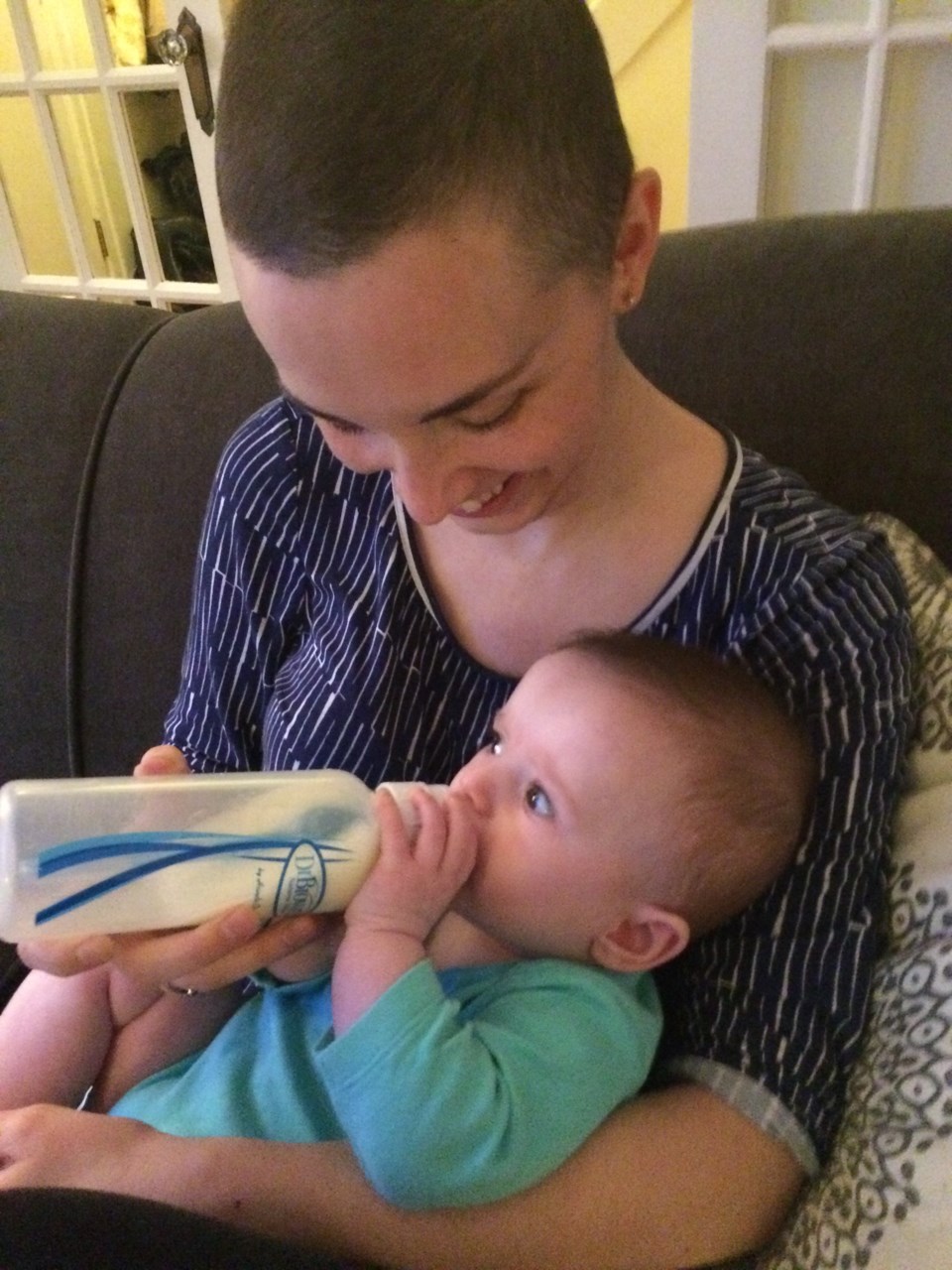
Two weeks later, Barrett and Edie were alone together. It was the middle of the night and Barrett’s chemo was to start a few hours later. Since chemo is toxic, and those toxins get passed through the breast milk, this was going to be the last time Edie could nurse.
“But that little monkey just knew — she refused my breast. I was worried it was going to be this big last thing and it turned out to be really lovely. She just knew.”
Barrett felt she had “dodged a bullet” by needing relatively few chemo treatments. That Christmas, the family photo shows her nearly bald, but with an overarching impression of happiness.
And then the radiation started.
“Radiation was a million times worse than chemo,” she says. “They did my entire pelvis and there are a lot of moving parts there. I was in a bad way. For me, it affected my stomach and bowels. It was beyond agony. It was awful.”
Unable to eat anything other than white bread and water, Barrett lost a tremendous amount of weight. Her “classic rock-bottom moment” came when she crawled into the bath and looked down at her skeletal body. “I could see every rib. I was emaciated. There was nothing left of me.”
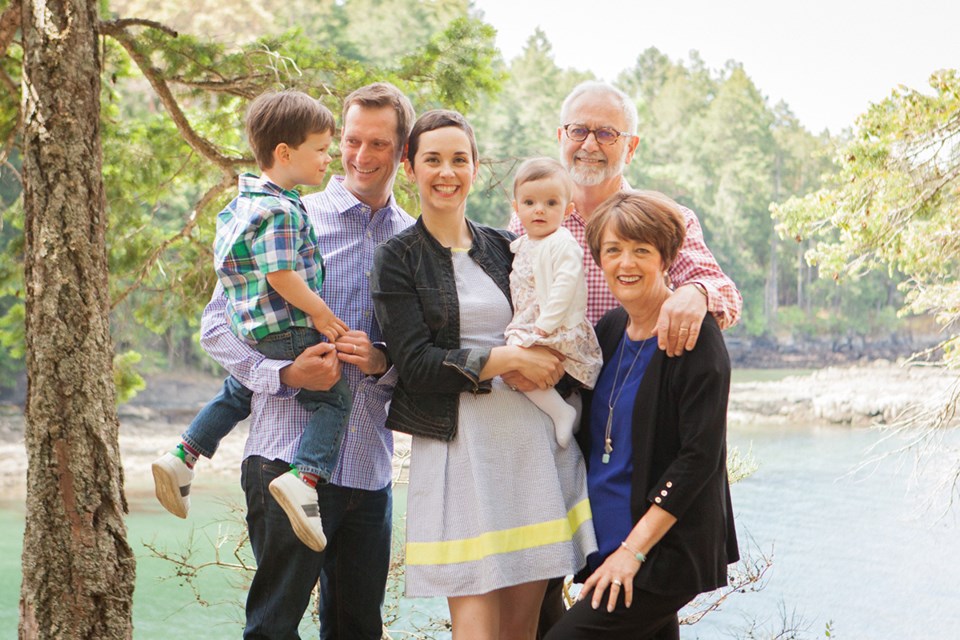
What got her through it was an incredible support network with her husband Tom as its nucleus.
“Tom just kept it normal. Holy, man, did Tom step up. I feel so grateful. He has this incredible ability to rise to whatever challenge is put in front of him. He just understands what needs to be done and does it with compassion and love and without hesitation. That’s how our family got through this.”
Her parents were always there for them, too. They helped with Robertson, who was two and a half when it all started, and her mother drove Barrett to each of her radiation sessions. Friends brought them meal after meal so the last thing they had to worry about was what for dinner. In March, Barrett wrote a powerful blog in the Huffington Post about her extraordinary friendship with Nicola, who was going through cancer treatments at the same time.
Luckily, rock bottom was soon followed by a gradual return to health. She enrolled in all of the programs at Inspire Health, including nutrition counselling (which recommends she drink lots of green tea) and exercise classes. In a September 2016 Facebook post, she wrote, “Six months ago I was finishing treatment. Four months ago I was spending most of every day stuck in bed. Three months ago I was tired all the time and pushing myself to get through each day. Today, I ran 5kms.”
Cancer, round two
There was still one more hurdle, though. A few months ago, Barrett had a hysterectomy, again as a preventative measure. They took out her other ovary and fallopian tube, uterus, cervix and omentum, “the fatty skirt that holds all the bits together. If ovarian cancer spreads, it goes there first.”
She thought that was the end of it. “All my bits were gone. It was the last piece before closure.”
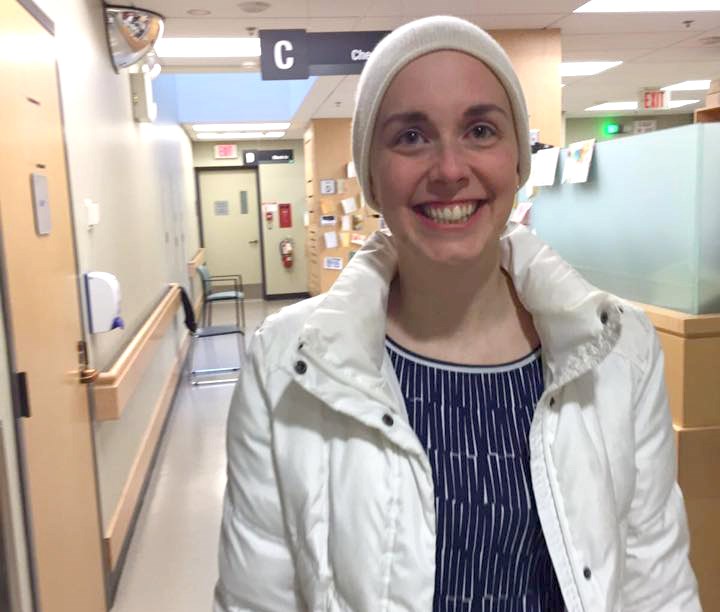
On Canada Day, her beloved ob-gyn called to say that while most of the biopsy was negative, they did find some cancer cells. Once again, she was diagnosed with stage one ovarian cancer.
Barrett was advised to talk to the BCCA about next steps. After the appointment, it was if she was in a stupor. Although her husband had heard the oncologist clearly say “you are cured” and that no further treatments were necessary, she was scared by the realization the cancer had been lurking, once again unnoticed, in her body.
“I was expecting to be high-fiving strangers in the street but, instead, I was waiting for the other shoe to drop. It took me a while to wrap my head around it.”
The hysterectomy has also thrown her into full-blown menopause. “I did not give credit to hormones,” she says. “My poor husband. I went from can’t-get-out-of-bed depression to being filled with rage. I’d want to punch him in the face because he was grinding the coffee too loudly.”
Today she’s on her fourth medication mix of hormone replacement therapies. She’s also in line for genetic testing to determine if she’s at risk of developing breast cancer. If she is, she already knows what her decision will be: “I’ll have a double mastectomy and move on.”
This attitude has engendered much praise for Barrett and the way she has handled a devastating health crisis. Grateful, she nonetheless brushes off the compliments.
“People say, ‘You’re so brave.’ Oh, come on. There’s nothing brave about me. All I did was go to where doctors told me to go. I have two young children; I’ll go where the science goes. Bravery is when you have a choice; I didn’t choose to go there.”
What about “You’re so strong”? Doesn’t she deserve that? “What’s the other option,” she asks.
You’re so positive? “I’ve spent nights making a list of the videos I want to make so if I die my kids know who I am.
“I never got angry, though. I got sad and scared.”
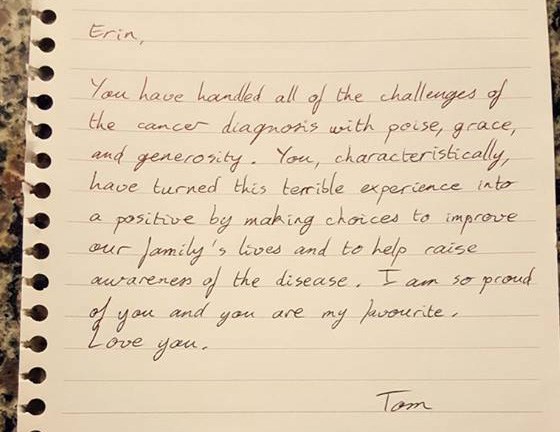
Days away from celebrating Edie’s second birthday, Barrett takes a philosophical approach to the ordeal. For the first 35 years of her life, she had nothing but blessings. She was born in Canada to a family that loved and cherished her. She’s had success in education, her career (she’s co-founder of an app called Maybe* that lets women remember which items they are tempted to buy) and her marriage.
“Why did I get all of these good things? Why don’t I have to worry about paying my rent? I got lucky. Sometimes things aren’t going to go in your favour. I don’t feel this great sense of injustice. Why did I get lucky enough for all the good things to happen to me?”
Still mourning the loss of the opportunity to have a third child, she and her husband are turning this into a positive as well. One day they’d like to become a foster family.
“I believe the right people will come into our family when they’re meant to,” she says. “I do feel our family’s not done yet.”
